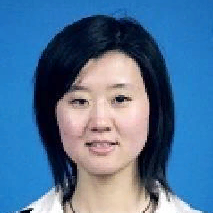International Journal of Image, Graphics and Signal Processing (IJIGSP)
IJIGSP Vol. 3, No. 2, 8 Mar. 2011
Cover page and Table of Contents: PDF (size: 515KB)
Modeling and Simulation of integrated steering and braking control for vehicle active safety system
Full Text (PDF, 515KB), PP.1-8
Views: 0 Downloads: 0
Author(s)
Index Terms
Vehicle, experimental platform, integrated control, active steering, active braking, Kalman filter
Abstract
Active chassis systems like braking, steering, suspension and propulsion systems are increasingly entering the market. In addition to their basic functions, these systems may be used for functions of integrated vehicle dynamics control. An experimental platform which aims to study the integration control of steering and braking is designed due to the research requirement of vehicle active safety control strategy in this paper. A test vehicle which is equipped with the systems of steer-by-wire and brake-bywire is provided and the Autobox, combined with Matlab/simulink and MSCCarsim, is used to fulfill the RCP (Rapid Control Prototyping) and HIL (Hardware-in-loop). The seven-freedom vehicle model is constructed first and the approach of vehicle parameters estimation based on the Extended Kalman Filter (EKF) is proposed. Testing the vehicle state through the sensor has its own disadvantage that the cost is high and easily affected by environment outside. To find a actual method of receiving the vehicle state using the ready-made sensors in vehicle, the researchers put forward various estimation method, of which have advantages and disadvantages. Based on the above, this paper applies the EKF to estimate the vehicle state, making the actual estimation come true. The primary control methods and controller designment is carried out to prove the validation of the platform.
Cite This Paper
Beibei Zhang,Liang Tong,"Modeling and Simulation of integrated steering and braking control for vehicle active safety system", IJIGSP, vol.3, no.2, pp.1-8, 2011. DOI: 10.5815/ijigsp.2011.02.01
Reference
[1]R.Rajamani. Vehicle Dynamics and Control[M].New York:Springer,2006.
[2]Abe M.Kano Y. Side-slip control to stabilize vehicle lateral motion by direct yaw
[3]Trachtler A.Integrated vehicle dynamics control using active brake,steering and suspension system[J]. Vehicle Design, vol.36(1),pp: 1-12, 2004.
[4]Mammar S.Koenig D.Vehicle handling improvement by active steering[J].Vehicle System Dynamics, vol.38(3),pp: 211-242, 2002,
[5]H.Chou,B.D.Andrea Novel.Global vehicle control using differential braking torques and active suspension forces[J].Vehicle System Dynamics, vol.43(4),pp:261–284, 2005.
[6]M.Tanelli,R.Sartori.Combining slip and deceleration control for brake-by-wire control systems:a sliding-mode approach[J].European Journal of Control, ,vol.13(6),pp: 593–611, 2007.
[7]K.Uematsu,JC.Gerdes.A comparison of several sliding surface for stability control[C].Proceedings of International Symposium on Advanced Vehicle Control, pp:601-608, 2002.
[8]Braess, H. Seiffert, U. Handbuch Kraft fahrzeug technik. Vieweg and Teubner, 2005
[9]Reichel, H. Elektronische Brems systeme. Expert Verlag, 2003.
[10]Waltermann,P.Schutte,H.Hardwarein-the-Loop Testing Of Distributed Electronic Systems[J],ATZ,5/2004.
[11]Dugoff H,Fancher P S,Segal L.Tyre performance characteristics affecting vehicle response to steering and braking control inputs[C].Final Report,contract CST-460,Office of Vehicle System Research,US National Bureau of Standards, 1969.
[12]Dan Simon. Kalman filter with state equality constraints [J]. IEEE 2002.
[13]K.L.Shi.Speed estimation of an induction motor drive using an optimized extended Kalman filter[J]. IEEE 2002.
[14]Kalman.R.E.A new approach to linear filtering and prediction problems[J].Transaction of the ASME-journal of basic engineering, pp:35-45, 1960.
[15]H.Cherouat,S.Diop.Vehicle velocity estimation and vehicle body side slip angle and yaw rate observer[C]. Proc.IEEE Internat.Symposium Industrial Electronics,ISIE 2005,Mini Track On Automotive.
[16]Nor Maniha Ghani,Yahaya Md. Sam.Active Steering for Vehicle System Using Sliding Mode Control[C].4th Student Conference on Research and Development (SCOReD 2006), Shah Alam,Selangor,MALAYSIA.
[17]T.A.Johansen.Optimizing nonlinear control allocation[C]. Proc. IEEE Conf.Dec. Control, Bahamas, pp:3435–3440, 2004.

